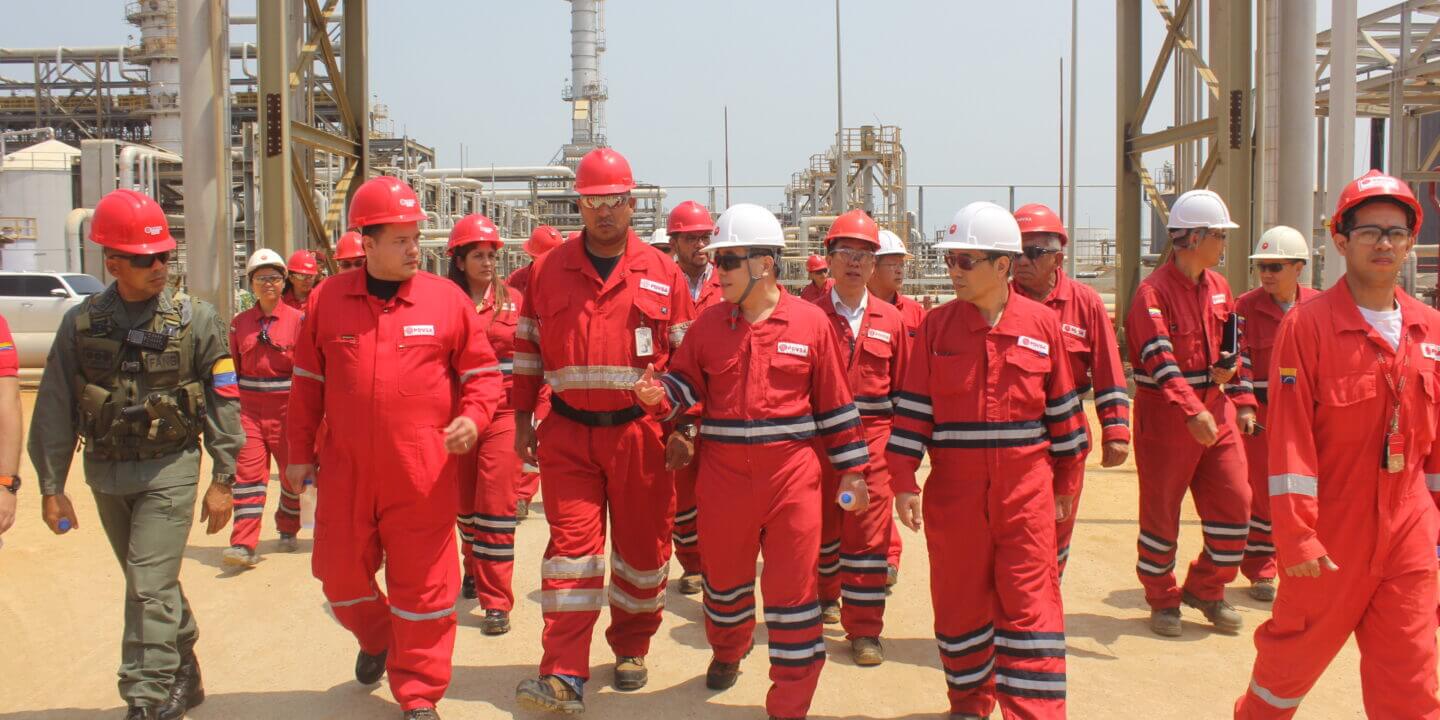After over a year, Venezuela has resumed direct shipments of its crude oil to China, according to Refinitiv Eikon vessel-tracking data and inner paperwork from the Venezuelan state-owned oil and natural gas company Petroleos de Venezuela (PDVSA). Shipping monitoring service TankerTrackers.com first noticed the resumption in the transport of Venezuelan crude to China in late August, when it observed a tanker named Kyoto loading 1.8 million barrels of heavy crude in late August.
In January 2019, Chinese firms were forced to stop buying crude oil and fuel from Venezuelan ports after the Trump administration imposed sanctions on PDVSA and its trading companies, which included the Chinese state-owned China National Petroleum Corp (CNPC) and its listed arm PetroChina, which is Asia’s largest oil and gas producer. US refineries, a major customer of Venezuelan oil and related products, had also halted the purchase of crude oil from Venezuela.
The sanctions were part of efforts by Washington to oust Venezuelan President Nicolas Maduro, who secured a second term in office in May 2018, in what was considered to be a rigged election. Among many other election irregularities, several opposition parties were banned from participating, and a socioeconomic crisis ensued along with widespread public disapproval of the government. Despite applying economic and diplomatic pressure, the United States failed to successfully oust Maduro, who was known to be backed by China and Russia, or curb the country’s oil exports.
Venezuela’s revenues from oil reportedly account for about 99% of its total export earnings. Apart from petroleum, the country also exports chemicals and agricultural products. Through the first six months of 2019, China imported an average of 350,000 barrels per day of crude from Venezuela. As the US tightened sanctions on Venezuela, Chinese purchases started to slow, and by late 2019, completely stopped. Despite the slowdown, China replaced the United States as Venezuela’s top importer of oil in 2019.
However, part of this reason can also be attributed to the fact that, despite sanctions, China had never stopped buying oil from the South American nation, and had simply rerouted the shipments through Malaysia, thus making it look like the new Chinese imports were originating from Malaysia. Between July 1 and December 31, at least 18 shipments totalling 19.7 million barrels of rebranded Venezuelan crude were delivered to Chinese ports. According to Reuters, this operation was carried out with the help of a Switzerland-based unit of Rosneft, Russia’s state-owned oil company.
In an effort to limit the economic damage wrought by US sanctions by offering new avenues to protect foreign investment, Venezuelan Vice President Delcy Rodríguez had unveiled the anti-blockade law in October. The law intends to “protect internal and external assets from the threat of confiscation, theft, and looting by foreign governments or companies aligned with the blockade”.
Additionally, Venezuela has also found a loyal ally in China as it has not just continued to recognize the legitimacy of Maduro’s regime, but has also provided essential economic and political support. In October 2019, China helped Venezuela win a seat on the United Nations Human Rights Council. Since 2007, China has also become the main source of Venezuela’s external financing by investing roughly $67 billion. This is not unusual for China as it expands ties in Latin America. In only 10 years, trade between the two regions has multiplied more than 20-fold as hundreds of agreements have been signed in areas of energy, transport and infrastructure in strategic locations. Experts have described the region as a “natural extension” of China’s Belt and Road Initiative (BRI), and Uruguay, Panamá, Chile, and Perú have already signed on for BRI projects.
Venezuela Resumes Oil Shipments to China Despite US Sanctions
Venezuelan state-owned oil company PDVSA has resulting trading crude oil and fuel with PetroChina and China National Petroleum Corp, going against the sanctions imposed by Washington last year.
November 27, 2020

SOURCE: PDVSA
